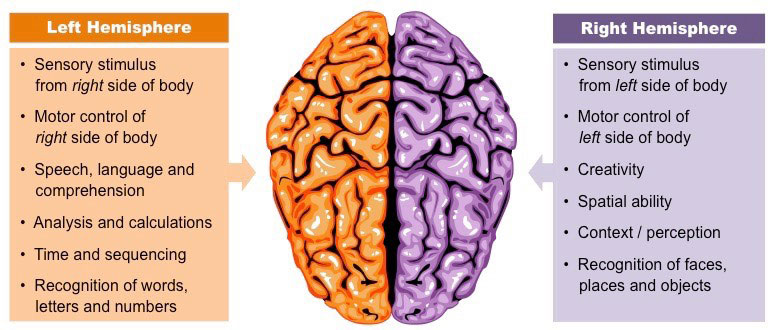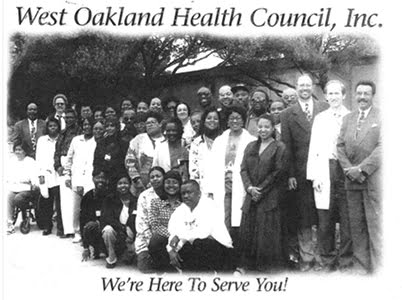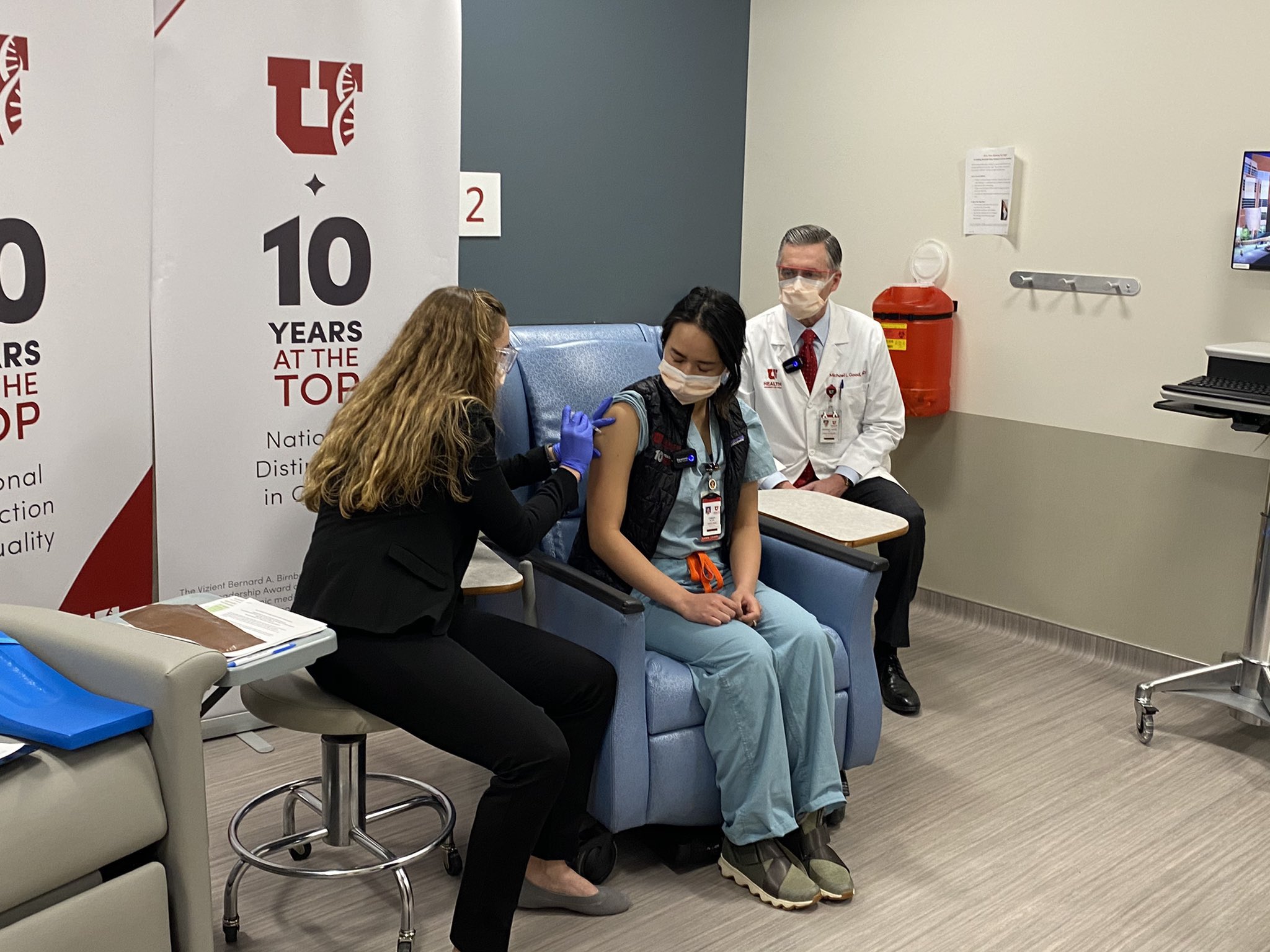Featured Courses
Florida: Specialized Alzheimer's Adult Day Care, Level One
Florida: Specialized Alzheimer’s Adult Daycare, Level Two
About Cultural Competency in Oregon
California: Implicit Bias for Healthcare Providers
Kentucky: Implicit (Unconscious) Bias
Fentanyl: Scourge of the Opioids (50% off)
Balance, Postural Control, and Falls in Older Adults (50% off)
Chocolate milk will stay on school lunch menus, as USDA reverses course
April 24, 2024 Chocolate milk in schools is here to stay.
The U.S. Department of Agriculture announced Wednesday that it has abandoned a previous proposal to restrict the sale of flavored milk in elementary and middle schools. Instead, the USDA will enforce a limit on added sugars in flavored milk starting in the fall of 2025.

Read more in this article by Nicholas Florko in STAT Health.
EMTALA, a vital health law you’ve never heard of, is in danger
April 23, 2024 Anyone who has gone to a hospital’s emergency room expecting to receive medical care — not knowing where else to turn, uncertain whether a loved one is having a medical emergency and what can be done about it, or unsure if they can pay — has relied on a law they couldn’t name: the Emergency Medical Treatment and Labor Act (EMTALA).

Congress enacted this law in 1986. It creates a point of rescue for anyone with a medical emergency. It is the only law in the country that ensures no matter who you are or what circumstance you are in, a hospital emergency department will provide you with emergency care.
Read more in this article by Nicole Huberfeld in STAT First Opinion.
Hospitals largely keep quiet on maternal care since Dobbs, STAT survey finds
April 22, 2024 The Supreme Court decision to overturn Roe v. Wade has transformed not just abortion access but maternal health care across the United States, causing physicians in states with restrictive laws to shift treatment of conditions including ectopic pregnancy and miscarriage. The full scale of the impact, though, has been obscured in a polarized political climate where physicians are often afraid to speak out, or are blocked by their hospitals from talking about their experiences post-Dobbs.

Read more in this article by Olivia Goldhill in STAT Hospitals.
Covid ignited a global controversy over what is an airborne disease. The WHO just expanded its definition
April 18, 2024 In the chaotic first few months of the Covid-19 pandemic, stores faced shortages of all kinds — toilet paper, canned food, and especially, cleaning supplies. With everyone scrubbing their groceries, mail, even library books, good luck finding antibacterial wipes or disinfectant sprays back then. That’s because public health advice in early 2020 focused on sanitizing surfaces, not protecting against a virus that could be spread through the air.

Much of that guidance could be traced back to the World Health Organization, which stated early on, and unequivocally, that Covid-19 was not an airborne disease. Even as evidence grew that coronavirus-laced particles could linger in the air indoors and infect people nearby, and researchers raised the alarm about the risks this posed to health care workers and the general public, the WHO didn’t acknowledge that Covid was airborne until late 2021.
Read more in this article by Megan Molteni in STAT Health.
Florida: Specialized Alzheimer’s Adult Daycare, Level Two (345)
April 18, 2024 New course for specialized Alzheimer's Adult Day Care. Approved by the FL Department of Elder Affairs, Curriculum Approval #SAADC 10350. Approved through April 2, 2027. Agency and corporate contracts available.

Click here to access FL Specialized Alzheimer's Adult Day Care, Level 2
Practicing medicine at a predominantly Black institution gave me the gift I didn’t realize I needed
April 16, 2024 “You have a big voice, Dr. Grubbs,” the clinic manager said.
I flinched. The last time I heard similar words, they were part of a common refrain that I had encountered often. “You’re too direct.” “Too outspoken.” “Intimidating.” Peers who looked like me encouraged me to put my head down, make myself smaller, endure — and never, ever call out racism. This, they insisted, was the pathway to success in a predominantly white, academic medicine institution like those where I spent most of my medical career.
Until now.
“No,” the clinic manager said, “that’s a good thing.”

Read more in this article by Vanessa Grubbs in STAT First Opinion.
Hospitals that make profits should pay taxes
April 14, 2024 As diligent taxpayers breathe a sigh of relief that the hassle of filing their tax forms is over for another year, the Internal Revenue Service continues to let most U.S. hospitals pay nothing in federal taxes. It’s time for Congress to take a hard look at the IRS’s hand in health care.

The agency uses a vague “community benefit” standard to liberally grant tax-exempt status to so-called nonprofit hospitals even as many of them are financially taking advantage of sick Americans with inflated medical bills. Several of my Johns Hopkins colleagues and I published a study in the Journal of the American Medical Association showing that some nonprofit hospitals sue and garnish the wages of low-income patients who can’t afford to pay their medical bills. Where’s the community benefit in that? Nonprofit hospitals are supposed to be compassionate and merciful, not predatory and ruthless.
Read more in this article by Marty Makary in STAT First Opinion.
To rebuild trust in public health: Better communication, fewer mandates, and small wins
April 11, 2024 It’s no surprise in today’s corrosive political environment that trust in government is near an all-time low. That’s a big problem. Communities with more trust during the Covid-19 pandemic had fewer deaths and less economic devastation.

In many countries — notably the United States — the pandemic dissolved trust between parts of the community and the public health system. How can that trust be restored? In a word: gradually. Trust is built in drops and lost in buckets.
Read more in this article by Thomas Frieden in STAT First Opinion.
AI makes retinal imaging 100 times faster, compared to manual method
April 10, 2024 Researchers at the National Institutes of Health applied artificial intelligence (AI) to a technique that produces high-resolution images of cells in the eye. They report that with AI, imaging is 100 times faster and improves image contrast 3.5-fold. The advance, they say, will provide researchers with a better tool to evaluate age-related macular degeneration (AMD) and other retinal diseases.

Read more in this News Release from NIH.
As a rule, rape exceptions for abortion don’t work
April 9, 2024 A year before the Supreme Court overturned Roe v. Wade in 2022, Texas implemented Senate Bill 8, which banned abortions for all but the very few who made it to a clinic within about two weeks of missing their period. I was an abortion provider at the time in San Antonio, and the eight months I worked after SB8 took effect were the most depressing of my career. I was forced to turn away hundreds of patients and explain that the most convenient abortion clinic was more than 500 miles away in New Mexico.

The most difficult conversations I had during that time were with patients who had been raped. I remember a young woman in my clinic who, after learning that she couldn’t get an abortion because she was 10 weeks pregnant, told me she needed to rush back to work so her abusive boyfriend wouldn’t find out she had made an appointment at Planned Parenthood. She was pregnant because he had raped her, and she had hoped to get an abortion secretly, knowing that the bleeding and cramping that happen after a medication abortion are basically indistinguishable from having a miscarriage or a heavy period.
Read more in this article by Samuel Dickman in STAT First Opinion.
Florida: Specialized Alzheimer’s Adult Daycare, Level One (347)
April 8, 2024 ATrain Education offers one of the few approved Specialized Alzheimer's Adult Day Care courses approved by the Florida Department of Elder Affairs (Curriculum Approval Level 1 / 3 hour SAADC 10335). Approved through April 2, 2027. Agency and corporate contracts available.

Click here to access the course.
Your dog is probably on Prozac. Experts say that says more about the American mental health crisis than pets
April 5, 2024 Dogs, our sunny, selfless shadows, crave little more than a daily walk, a treat or two, and their human’s happiness. But increasingly, their own happiness is the topic of concern in veterinarian offices, dog parks, and internet forums.

Prozac prescriptions for dogs are on the rise, veterinarians across the country acknowledge, along with a myriad of cheaper generic mood stabilizers sold for humans but applied to pets’ separation anxiety, socialization fears, biting habits, or other problematic behavior.
Read more in this article by Sarah Owermohle in STAT Health.
Covid cut life expectancy by 1.6 years globally, but the leading causes of death haven’t changed since 1990
April 4, 2024 The leading causes of death haven’t changed since 1990 — with one glaring, pandemic-sized exception.

According to the latest analysis of the Global Burden of Disease study, which reviewed deaths from 288 causes in over 200 states and territories, Covid-19 was the only condition that broke into the ranks — if only for two years — of the global population’s traditional top five killers: ischemic heart disease, stroke, chronic obstructive pulmonary disease, and lower respiratory infections. In 2020 and 2021, Covid-19 was the second-leading cause, pushing stroke to third position.
Read more in this article by Annalisa Merelli in STAT Health.
I saw the promise of diversity efforts in health care. A moment later I saw its critical gaps
April 3, 2024 Health care was once moderately immune to the anti-diversity, anti-equity, and anti-inclusion craze. Not anymore*.
California’s medical board is facing litigation for requiring physicians be trained about implicit bias. Health systems are reassessing training on systemic racism because of Florida Governor Ron DeSantis’s bill that prohibits public funding for diversity, equity, and inclusion initiatives. And Republicans in the U.S. House of Representatives have introduced a bill to amend the Higher Education Act of 1965; the bill aims to prohibit medical schools from receiving federal aid if they adopt certain policies related to diversity, equity, and inclusion.

Read more in this article by David Velasquez in STAT First Opinion.
*See our courses on cultural competence and implicit bias under "Featured Courses."
How lung distress from SARS-CoV-2 can cause heart damage
April 2, 2024 SARS-CoV-2, the virus that causes COVID-19, can trigger a life-threatening condition called acute respiratory distress syndrome (ARDS), in which fluid leaks into the lungs and prevents oxygen from passing into the body. Other complications of COVID-19 include systemic inflammation and cardiovascular complications.

Read more in this article by Brian Doctrow in NIH Research Matters.
Banning teens from social media won’t help their mental health. Here’s what might
April 1, 2024 Since the U.S. surgeon general’s 2023 advisory on social media and teen mental health, public concern has skyrocketed around adolescents’ digital lives. Major news organizations and even state governments have pinned social media apps as addictive, dangerous, and the cause of the youth mental health crisis. In turn, calls to ban teens from social media apps have started to emerge, with mixed reception from policymakers nationwide.
Read more in this article by Jessica Schleider in STAT First Opinion.
People in Republican-voting states more likely to report Covid-19 vaccine side effects, study says
April 1, 2024 People in Republican-voting states were more likely to report adverse events after receiving a Covid-19 vaccination than people living in Democratic-leaning states, a new analysis finds, suggesting that how people view their post-vaccine side effects or decide whether to report them may be shaped by their political views.

Read more in this article by Elizabeth Cooney in STAT Health.
Covid’s scientific silver lining: A chance to watch the human immune system respond in real time
March 28, 2024 While an increasingly anxious world watched a new coronavirus spread across the globe in early 2020, veteran immunologist Rafi Ahmed quickly grasped that his field was about to experience something truly extraordinary. His former student Ali Ellebedy was gnawed by frustration as Covid shutdowns stalled his influenza research; it took until the summer, when mass vaccination planning hit his radar, before the same realization kicked in.

For scientists who study the human immune system, the penny dropped at different points in the early frenetic months of the Covid-19 pandemic. Looking back now, many marvel at the realization that they witnessed and were able to chronicle something no other scientists had ever actually seen.
Read more in this article by Helen Branswell in STAT Health.

 Facebook
Facebook Twitter
Twitter LinkedIn
LinkedIn Forward
Forward